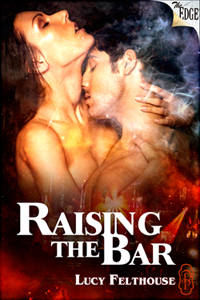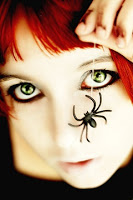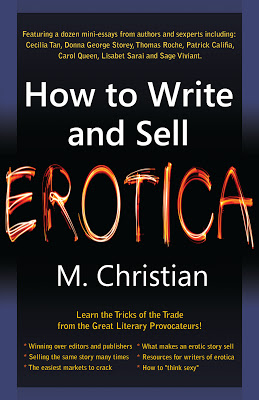By KD Grace
Today’s post is a hard one for me to settle into because it
could so easily devolve into navel gazing, and one of the promises I made to
myself and to my readers back when I wrote my very first ever blog post was
that I would keep the navel gazing to a minimum. There must be a gazillion
writer and write-hopefuls blogging, and each one is convinced that their
journey to writing success is totally unique and must be shared. Well maybe not
each one, maybe I’m only speaking for myself, in which case, I blush heartily
and apologise.
My point is that all of the energy, angst, fear, adrenaline,
exploration of dark places, exploration of forbidden places that used to go
into the pages and pages of that gargantuan navel-gaze that was my journal now
go through that strange internal filtering process that takes all my many
neuroses and insecurities, all my deep-seated fears, all my misplaced teenage
angst and magically transforms them into story.
That was sort of my little secret — that I alone, in all
the world, suffered uniquely and exquisitely for my art. I took all the flawed
and wounded parts of myself, parts I wasn’t comfortable facing, examined them
reflected through the medium of story and found a place where I could view them
and not run away screaming.
Where is all this borderline navel-gazing leading? There was
a BBC article about ten days ago asking the question, is creativity ‘closely
entwined with mental illness?’ I shared it on Facebook and Twitter to find
that lots of other writers had shared it as well and the general response was
simply that it sounded about right. There were some very moving conversations
that came out of those sharings of that article along with the realization — something
I’ve long suspected — that I am not all alone out there in my vibrant unique
neurotic bubble. And really, it comes as no surprise that one has to be at
least a little neurotic to be ballsy enough to try to bring, in one form or
another, what lives in our imagination into the real world and to attempt to put
it out there for everyone to see.
As the article was shared around and the responses mounted,
I found myself thinking of C.G. Jung’s archetype of the Wounded Healer. The
healer can only ever heal in others what she herself is suffering from. Empathy
goes much deeper than sympathy. The human capacity for story is as old as we
are. Before the written word, story was the community archive. It was our
memory of who we are, our history, our continuity, our triumphs, trials,
sufferings, joys, all memorised, filed away, and kept safely in the mind of the
story teller. That had to do something to your head, knowing that you were the
keeper of the story of your people! How could storytellers be anything other
than neurotic?
It’s a lot more personal now that we have the written word.
No one has to dedicate their lives to memorising the story of their people. Now
we tell our own story, the story of the internal battles that wound us, the
story of those wounds transformed. We all tell our stories in our own personal
code. What may well start out as a navel gaze into the deep dark wilderness of
Self can be transformed into powerful, vibrant story, and we’re healed! At
least temporarily, or at least we’re comforted. And hopefully so are those with
whom we share our stories. When I journalled my navel-gazes, I wasn’t
interested in anyone else seeing what was on those pages. It was a one-sided
attempt at a neurotic house-cleaning. Sharing the story is a part of the
healing; sharing the story is a part of the journey. The Storyteller had no
purpose if she didn’t share the story with her people.
As a neurotic living among other neurotics, I doubt that
there’s anything we’re more neurotic about as a people than sexuality. I don’t
think it’s any real surprise that there’s suddenly a huge market for erotica.
Last night I sat on a panel of erotica authors, editors and publishers at the
Guildford Book Fair – something that would have never happened before Fifty
Shades of Grey, and even at 9:00 in the evening, we played to a full house.
Each of us had a story of how we came to write erotica. We shared our stories
with a roomful of people, who then took those stories away with them to
possibly be shared with others. The archetype of the storyteller is alive and
well. And I believe writers live out the archetype of the wounded healer on a
daily basis.
Most of the time I write my stories because it’s just too
much fun not to. That’s the truth of it. I seldom consciously dig deep to find
those wounded, neurotic places. Really, who would want to do that deliberately?
But the wounded places find me, and they end up finding their way into the
story. And what surfaces is never quite what I expected, always more somehow,
even if started out to be nothing more than a little ménage in a veg patch.









